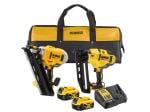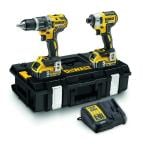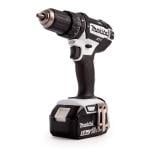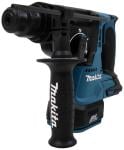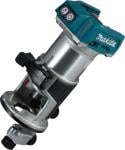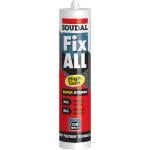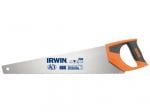Will Cordless Power Tools Take Over from Corded Altogether?
A question that has been on many tradesmen’s tongues for years now is: will cordless power tools eventually take over from corded altogether? Are we going to see corded power tools removed from circulation and eventually becoming obsolete? It’s a difficult question to answer because the eventual outcome would likely be yes. Just look at the way that phones went: at first you had to have it attached to the wall, so that you’d have to stand awkwardly while you talk to your mother for an hour—then not long after, we were able to take them to the sofa where we could rest them against our ears while we watch telly and pretend to listen. It seems that as technology progresses, we tend to lose the restriction of cables! However, right now, there are a number of benefits that come from using a corded power tool that we can’t ignore. Let’s have a look at the pros and cons of each, and you can decide for yourself.
Cables are a pain!
There’s no denying how much of a pain cables can be. For one thing, is there anyone out there who actually enjoys having to untangle a cable when setting up for a job? Sure, there are ways of wrapping a cable to as to avoid tangling, but they never seem to work! Corded tools immediately remove the need to unravel a cable, but again, there are a few cons that go with that as well.
Advantages of using corded power tools:
- Never-ending power source!
- High power output
- Lightweight as opposed to cordless
Disadvantages:
- Trip hazard
- Limited reach
- The necessity for PAT testing onsite
- Risk of damaging the cable (and causing injury)
- An immediate power supply is required
Advantages of using cordless power tools:
- The freedom to move around with no limitation
- No more tangled or damaged cables
- Cross-tool battery application
- New technology = cordless tools with a high power output
- No faffing with transformers (attach the battery and you’re off)
- No need for an immediate power source
Disadvantages:
- Batteries have limited power (regular charging is required)
- Batteries take time to charge fully
- Batteries are expensive
- Generally heavier than corded due to battery
Conclusion
As we can see from the pros and cons above, there are more advantages to using cordless, and they’re ultimately safer as well. You are always running the risk of having someone trip over your power cable, or the cable being cut by mistake—so, corded tools on construction sites are becoming less frequent. That said, a corded tool at home when you’re doing some DIY never really poses much of an issue: you’ve always got a power supply on hand and there’s generally no one around to trip on or damage the cable. So, it really comes down to personal preference, how frequently you’ll be using the tools and how much flexibility you need to manoeuvre. Ultimately, it’s not that big of a deal at this stage. However, as technology continues to take leaps and bounds, you can expect to see cordless tools that are lightweight, equally as powerful (if not more so) than corded, and with even longer battery lives, making them the obvious choice.


